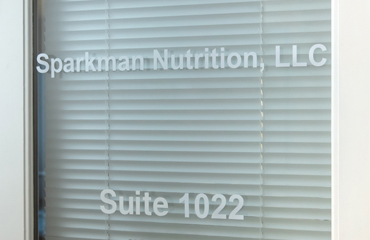By Zoe Halbert, CPD UT Austin with Alexa Sparkman MA, RDN, LD
Red Yeast Rice is a traditional Chinese ingredient and medicine found in both food and supplement form. Recently it has been receiving a lot of attention due to claims that red yeast rice lowers cholesterol dramatically. High cholesterol, specifically high LDL cholesterol, is a major risk factor of cardiovascular disease, the number one cause of death in the United States.
There are many ways of managing high cholesterol including medications and lifestyle factors, such as diet and exercise. Red yeast rice is now said to be another option. It is produced by culturing rice with many strains of a yeast called Monascus purpureus. The yeast produces Monacolin K, which is chemically identical to the active ingredient in statins, cholesterol-lowering drugs.
So, are these claims about red yeast rice true?
Several studies have showed evidence that Red yeast rice supplements are effective at lowering blood cholesterol and can be a viable alternative for patients that don’t tolerate statins.3-7 Since research is still in its early stages, experts still aren’t sure what the ideal dose should be. The amounts taken in some studies have varied from 1.2 to 2.4 grams per day. These dosages have been both safe and effective at lowering cholesterol considerably.
Despite the evidence supporting the blood cholesterol lowering effect of red yeast rice, there is insufficient evidence to support recommending the product to patients in the United States due to lack of regulation. The FDA claims red yeast rice products that contain more than trace amounts of Monacolin K are considered unapproved new drugs and cannot be sold legally as dietary supplements. Therefore, any red yeast rice supplements found in health stores In the U.S. will have very little of the active ingredient needed to lower cholesterol. More so, the amount of Monacolin K in a supplement can be very unpredictable. A 2017 study that analyzed different brands of red yeast rice supplements showed that the amount of Monacolin K ranged from 0% to 0.58%.
Though the United States has not approved the legal sale of red yeast rice with therapeutic amounts of Monacolin K, other nations have. The European Food Safety Authority has approved red yeast rice for maintaining cholesterol levels, and recommends the consumption of 10 mg of Monacolin K per day for adults.
What about consuming red yeast rice as a meal ingredient?
Red yeast rice can be used in cooking and is very common in some traditional Chinese dishes. It can be very difficult to find the ingredient in supermarkets In the United Sates though. There is insufficient evidence of red yeast rice as a food ingredients having an effect on lowering cholesterol.
Does red yeast rice have any side effects or safety concerns?
The same side effects that can occur in patients taking statins can also occur in patients who take red yeast rice products that contain Monacolin K including myopathy, muscle tissue breakdown, and liver toxicity.1 Monacolin K can interact with alcohol and medications that target the liver. Another concern is that some unregulated red yeast rice products may contain a contaminant called citrinin, which can cause kidney failure.2 It is important to speak with your physician before taking any new supplement.
The Bottom Line:
Red Yeast Rice supplements containing Monacolin K have been proven to lower cholesterol effectively. However, dosages have not been standardized and therapeutic doses are not sold legally in the United States. Without regulation, products coming from other countries may contain harmful contaminants. Just remember natural doesn’t mean free from potential harm. All supplements should be taken with the same care used for any medication.
Sources:
- Red Yeast Rice.” National Center for Complementary and Integrative Health, U.S. Department of Health and Human Services, 22 Feb. 2017, nccih.nih.gov/health/redyeastrice#hed1. Accessed 24 Sept. 2017.
- “Red Yeast Rice.” WebMD, WebMD, www.webmd.com/cholesterol-management/red-yeast-rice#2. Accessed 24 Sept. 2017.
- Nguyen, Thu, et al. “Red Yeast Rice.” Foods, vol. 6, no. 3, Jan. 2017, p. 19., doi:10.3390/foods6030019.
- Cohen, Pieter A, et al. “Variability in strength of red yeast rice supplements purchased from mainstream retailers.” European Journal of Preventive Cardiology, vol. 24, no. 13, 2017, pp. 1431–1434., doi:10.1177/2047487317715714.
- Becker, David J. “Red Yeast Rice for Dyslipidemia in Statin-Intolerant Patients.” Annals of Internal Medicine, vol. 150, no. 12, 2009, p. 830., doi:10.7326/0003-4819-150-12-200906160-00006.
- Verhoeven, Veronique, et al. “Red yeast rice lowers cholesterol in physicians – a double blind, placebo controlled randomized trial.” BMC Complementary and Alternative Medicine, vol. 13, no. 1, 2013, doi:10.1186/1472-6882-13-178.
- Johnston, T.p., et al. “Preventing cardiovascular heart disease: Promising nutraceutical and non-Nutraceutical treatments for cholesterol management.” Pharmacological Research, vol. 120, 2017, pp. 219–225., doi:10.1016/j.phrs.2017.04.008.
Gum, Sang Il, et al. “The physico-Chemical alteration of lovastatin and enhanced antioxidant effect of Bacillus subtilis fermented-Red yeast rice product.” Food Chemistry, vol. 232, 2017, pp. 203–209., doi:10.1016/j.foodchem.2017.04.023.
Spigoni, Valentina, et al. “Effects of a New Nutraceutical Formulation (Berberine, Red Yeast Rice and Chitosan) on Non-HDL Cholesterol Levels in Individuals with Dyslipidemia: Results from a Randomized, Double Blind, Placebo-Controlled Study.” International Journal of Molecular Sciences, vol. 18, no. 7, Dec. 2017, p. 1498., doi:10.3390/ijms18071498.
10. Peng, Diane, et al. “Original Research.” AJN, American Journal of Nursing, vol. 117, no. 8, 2017, pp. 46–54., doi:10.1097/01.naj.0000521973.38717.2e.
11. Cohen, Pieter A, et al. “Variability in strength of red yeast rice supplements purchased from mainstream retailers.” European Journal of Preventive Cardiology, vol. 24, no. 13, 2017, pp. 1431–1434., doi:10.1177/2047487317715714.
12. “Scientific Opinion on the substantiation of health claims related to Monacolin K from red yeast rice and maintenance of normal blood LDL cholesterol concentrations (ID 1648, 1700) pursuant to Article 13(1) of Regulation (EC) No 1924/2006.” EFSA Journal, vol. 9, no. 7, 2011, doi:10.2903/j.efsa.2011.2304.



